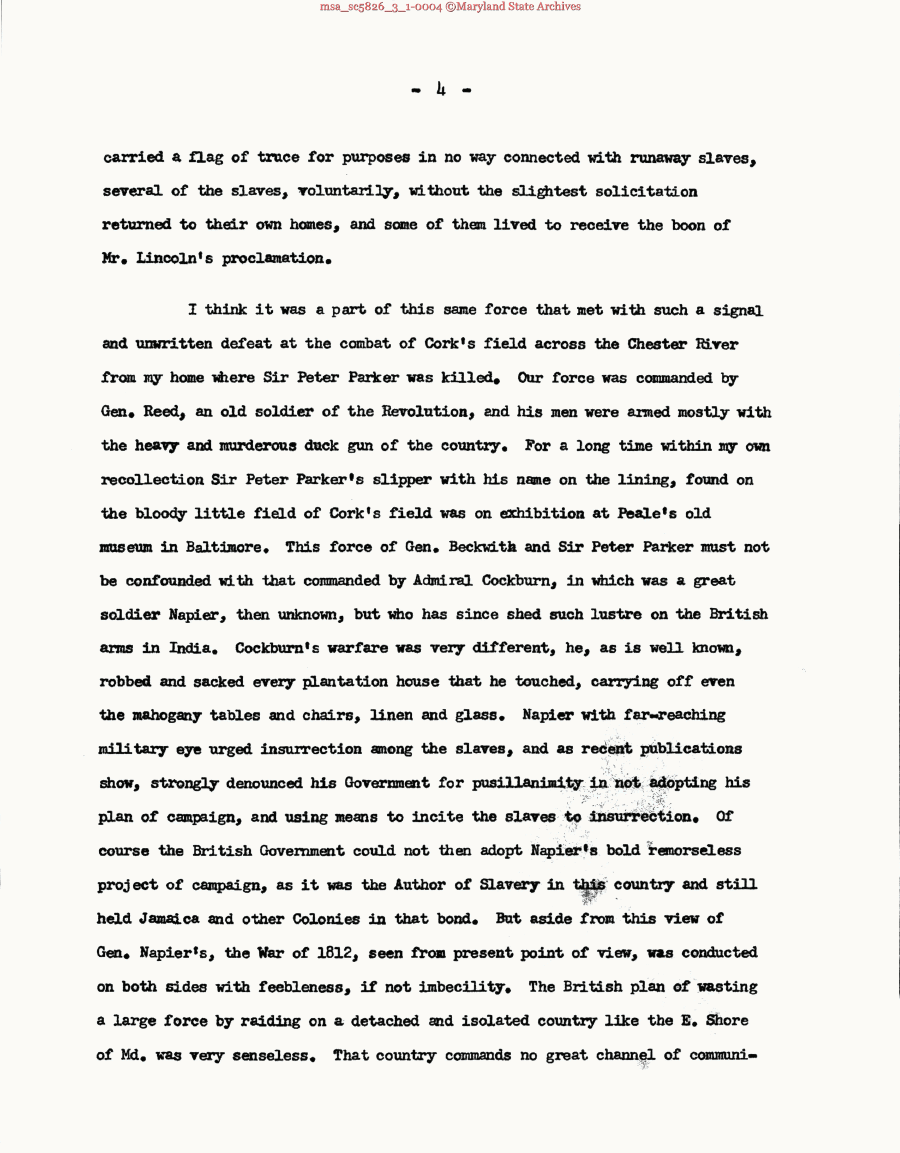 |
||||
|
Maryland State Archives Adam Goodheart Collection MSA SC 5826 msa_sc5826_3_1-0004 Enlarge and print image (982K) |
 |
||||
|
Maryland State Archives Adam Goodheart Collection MSA SC 5826 msa_sc5826_3_1-0004 Enlarge and print image (982K) |
| msa_sc5826_3_l-0004 ©Maryland State Archives - 4 - carried a flag of truce for purposes in no way connected with runaway slaves, several of the slaves, voluntarily, without the slightest solicitation returned to their own homes, and some of them lived to receive the boon of Mr. Lincoln's proclamation. I think it was a part of this same force that met with such a signal and unwritten defeat at the combat of Cork's field across the Chester River from my home where Sir Peter Parker was killed. Our force was commanded by Gen. Reed, an old soldier of the Revolution, and his men were armed mostly with the heavy and murderous duck gun of the country. For a long time within my own recollection Sir Peter Parker's slipper with his name on the lining, found on the bloody little field of Cork's field was on exhibition at Peale's old museum in Baltimore. This force of Gen. Beckwith and Sir Peter Parker must not be confounded with that commanded by Admiral Cockburn, in which was a great soldier Napier, then unknown, but who has since shed such lustre on the British arms in India. Cockburn's warfare was very different, he, as is well known, robbed and sacked every plantation house that he touched, carrying off even the mahogany tables and chairs, linen and glass. Napier with far-reaching military eye urged insurrection among the slaves, and as recent publications show, strongly denounced his Government for pusillanimity in not adopting his plan of campaign, and using means to incite the slaves to insurrection. Of course the British Government could not then adopt Napier's bold remorseless project of campaign, as it was the Author of Slavery in this country and still held Jamaica and other Colonies in that bond. But aside from this view of Gen. Napier's, the War of 1812, seen from present point of view, was conducted on both sides with feebleness, if not imbecility. The British plan of wasting a large force by raiding on a detached and isolated country like the E. Shore of Md. was very senseless. That country commands no great channel of communi- |